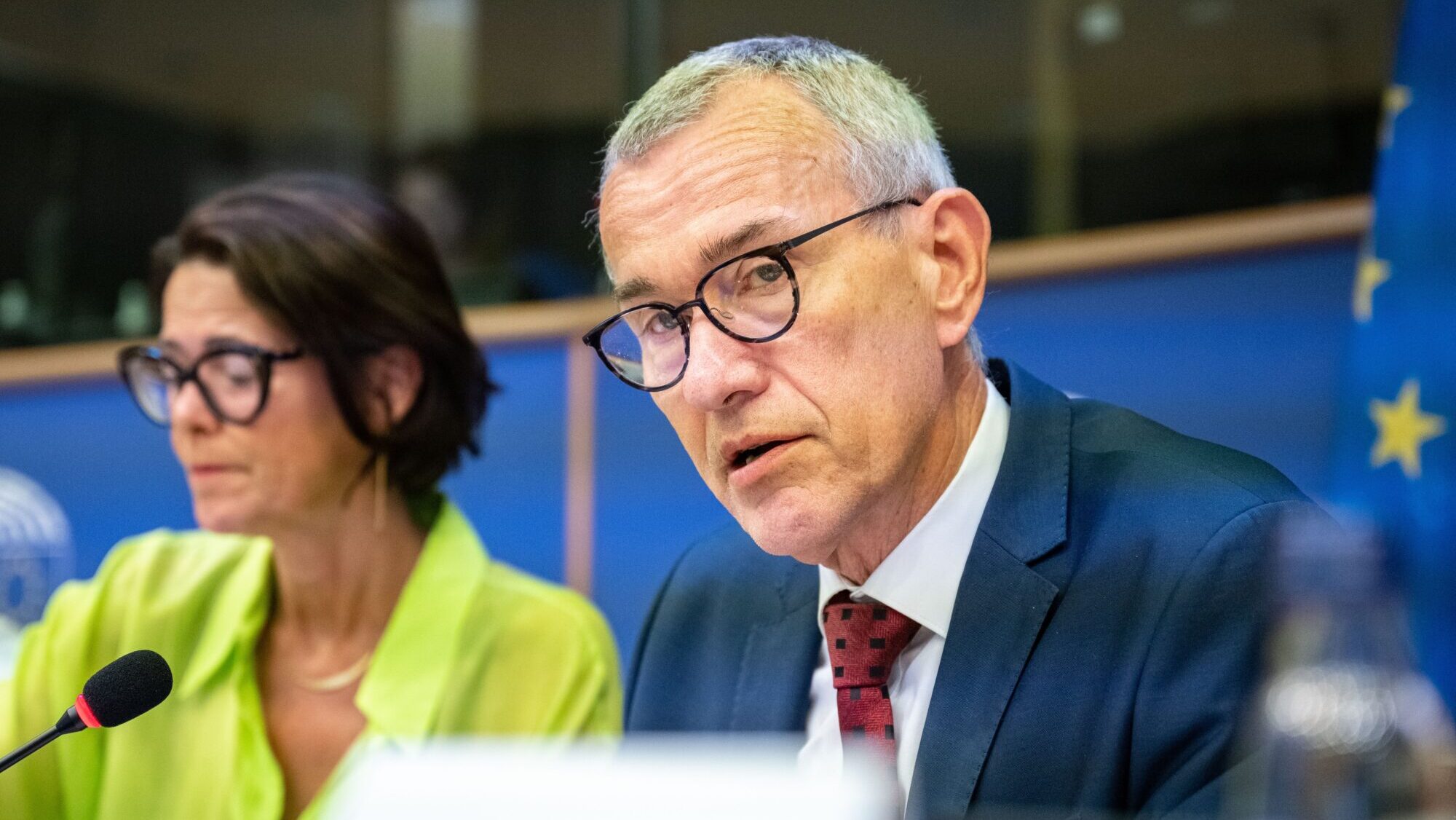
Belgian Deputy Prime Minister and Minister of Health Frank Vandenbroucke
Photo: Emilie GOMEZ © European Union 2022 – Source : EP
Belgian politics was shaken this month by a bizarre spy saga, prompted by a Belgian medical supplier hiring the Israeli surveillance team used by disgraced Hollywood producer Harvey Weinstein. The ensuing corruption scandal has dragged in the country’s lead candidate for the European Commission, Deputy Prime Minister Frank Vandenbroucke.
This scandal first emerged in the Belgian press in December and relates to allegations that the Ministry of Health, run by Vandenbroucke, awarded vaccine contracts to the medical logistics firm Movianto on the basis of cronyism.
The alleged corruption was uncovered when rival firm Medista lost out, after a sweetheart deal displacing the normal competitive tendering process. Medista hired Israeli spy firm Black Cube, which conducted intricate undercover work, including recording a meeting of a civil servant in a fake job interview.
The Israeli surveillance company conducted a sting operation in an Amsterdam restaurant after targeting the Belgian health official in question. He was successfully deceived into thinking he was applying for a job. The spies spent months establishing a phoney pharmaceutical company, using dozens of fake LinkedIn accounts and even bogus Zoom meetings.
A private intelligence outfit operated by former members of Mossad, Black Cube was also able to obtain recordings of one Movianto manager admitting to influencing the government decision about vaccination distribution, thanks to “personal relations” with state officials.
The video recorded by Black Cube was released to the Belgian press in December and immediately resulted in an official investigation into alleged grift. Meanwhile, right-wing Flemish N-VA and Vlaams Belang called for the resignation of Vandenbroucke.
A social democrat politician who has served as Belgium’s deputy PM since 2020, Vandenbroucke has been tipped to become the EU’s health commissioner later this year, but this contracting scandal is likely to have dented his chances.
Responding to our inquiries about its actions, Medista said it was left with no choice. Despite handling government PCR testing contracts earlier on in the pandemic, the company was gradually pushed out of the process in 2021, when decision-making power was transferred to a new department in the federal government.
Almost immediately, undue blame was placed on the company for its operational performance, with competitor Movianto given off-the-books assistance from a civil servant regarding avoiding legal pitfalls and pre-arranging prices.
There followed a period of alleged harassment from the government “attempting to smoke the company out by a cash flow drain,” with officials deciding to sever its 4-year contract. At this time, Movianto, it is alleged, was given the tender for a strategically important EU stockpiling programme for medical supplies earmarked for Ukraine without a proper public procedure.
Frozen out, Medista blamed a lack of government transparency and the work of one civil servant in particular. At this time, the company began downsizing from 120 to 40 employees due to the loss of the government contract and faced potential bankruptcy proceedings. This, Medista claims, was its original motivation for hiring the services of Black Cube.
Since coming to international prominence in 2017, when it was revealed to have surveilled the victims of Hollywood sex offender Harvey Weinstein, Black Cube has previously been embroiled in various corporate espionage scandals in Europe, as well as covertly monitoring members of the Soros Open Society network in Hungary.
In a statement last week, Black Cube said that it was “proud” of its hand in the recent Belgian sting operation, adding that the company operated fully within the law of whatever jurisdiction it was working in.
Both Movianto and Vandenbroucke have denied any wrongdoing in their actions, stating that Medista was dumped by the government simply because it was too costly and that the recordings of the civil servant have been used out of context.
Pressure is growing on Vandenbroucke this week, as more recordings obtained by Black Rock reveal the extent to which the private sector actually dictated Belgium’s COVID response.
At the time of publication, neither the office of Vandenbroucke nor the Belgian health ministry responded to our requests for comment.
